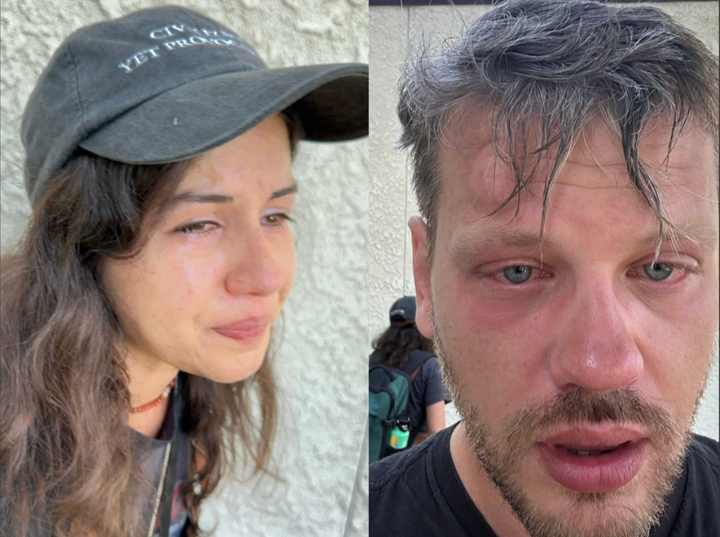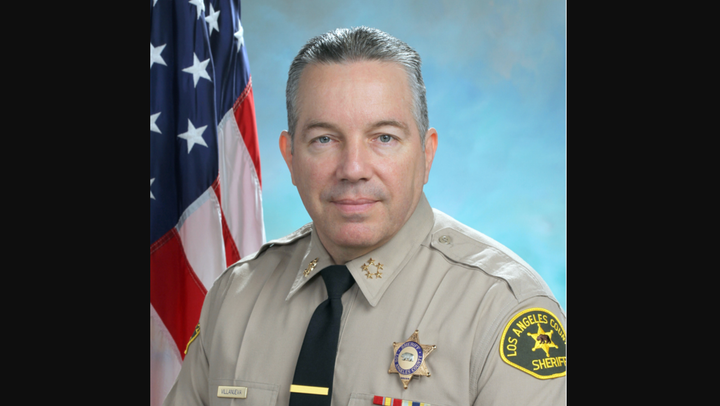Loyola University New Orleans Punishes Student Reporter For Engaging In Journalism

The following article was made possible by paid subscribers. Support independent journalism on whistleblowers and press freedom and become a subscriber.
UPDATE: On April 18, hours after this article was published, Loyola University New Orleans administrators reversed course, abandoned their effort to punish the student, and even apologized. More here.
***
A student journalist at Loyola University New Orleans lost her appeal and faces sanctions for reporting on a student who was arrested and charged with stalking.
Kloe Witt is a freshman. She was working on a story for the university newspaper called The Maroon, and the story was published on March 2.
Referring to an affidavit from the Orleans Parish Sheriff’s Office, Witt reported that a student had claimed that Luke Sahs “had followed her without her knowledge for several months and gathered information on her day to day movements and activities.”
The affidavit further indicated that Sahs was suspected of possessing “chemical materials” that could be used to “kill people.”
According to NOLA.com, which publishes The Times-Picayune/New Orleans Advocate, Witt “recorded an interview on her iPhone with a campus police officer about the arrest.” The officer shared a copy of the arrest record with her.
The university accused Witt of violating the school’s “code of student conduct” by “making an unauthorized recording of the interview, which was conducted at police headquarters.”
Though it was later dropped, the university initially claimed she had “falsified” or “mishandled” university records too.
“A disciplinary panel took up the matter in late March and found Witt to be at fault,” the newspaper recalled. “She unsuccessfully appealed the decision and is now facing sanctions that include writing a research paper on expectations of privacy in the digital age. If she refuses, she will be fined $200.”
The university slapped a warning on her academic record that will appear until the end of the fall semester. Another violation of the code of conduct could result in harsher consequences.
Witt spoke to NOLA.com and said she had informed the police that she was a reporter. She used the iPhone voice memo app to record a briefing on the arrest from an officer. “The phone was out and the screen was up and the recording memo was showing so they could see what I was doing.”
NOLA.com noted that Louisiana law does not require consent from more than one person if someone wants to record a conversation.
Witt told NOLA.com, “I chose Loyola because of the journalism program, and I love it here. I love writing for The Maroon. But it is upsetting to get in trouble for doing your job.”
Loyola’s Vice President of Marketing and Communications Rachel Hoormann defended the university’s sanctions against Witt, contending the discipline was “educational, not punitive, so that students come away with a fuller understanding of the issue and what they did wrong.”
The Tulane Hullabaloo, the student newspaper at Tulane University in New Orleans, condemned Loyola and came out in support of press freedom.
“Witt was invited into the police station to fulfill a journalistic duty: to shine light and share the truth with Loyola University’s community,” the Tulane Hulllabaloo Board declared. “A fellow student was arrested, and other students deserved to understand the details of the case.”
“It is reprehensible that the school would expect privacy here. But it is abhorrent that they would resort to punishment when their unreasonable expectation was not granted.”
The Tulane Hullabaloo called attention to the fact that Marquita Morgan-Jones, an "assistant director for residential community standards” at Loyola, was present for the briefing. Morgan-Jones apparently confronted Witt after an officer shared arrest documents with her, and she demanded that Witt leave the police station.
Not only was Morgan-Jones the “primary witness” against Witt, but she also is a “hearing officer in Loyola’s Office of Student Conduct.”
“Witt maintains that Morgan-Jones’s holding of both these roles presents a clear conflict of interest, which Loyola’s Code of Conduct prohibits,” the Hullabaloo added.
Louisiana State University’s newspaper The Reveille also condemned Loyola’s improper treatment of a journalist.
“It seems that Loyola administrators are less concerned about the legal underpinnings of this case and more concerned about flexing their control over the student newspaper,” the Reveille stated. “The circumstances suggest that an administrator showed up to the police station, felt threatened by the reporter’s presence and reached for any policy they could use to discipline Witt and send a message to other student reporters.”
Maroon editors-in-chief Macie Batson and Jackie Galli told the LSU newspaper, "If student journalists are allowed to unjustly be punished for ethically doing their job, we are afraid of what that means for the fate of a free student press, which the university promises.”
Loyola administrators have effectively spit on the notion of freedom of the press on campus. Witt has gone through this ordeal simply because she recorded a briefing from a police officer and asked for documents to further her reporting.
On top of that, the punishment of writing a 1,000-word paper on privacy in the digital age is absurd.
If anyone should be ordered to write such a paper, it is the school administrators who have twisted the idea of privacy to help them control student journalists.




Comments ()